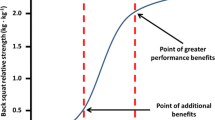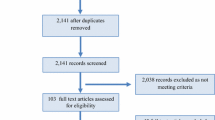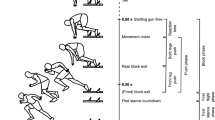Abstract
Submariners taking part in prolonged missions are exposed to environmental factors that may adversely affect bone health. Among these, relatively high levels of CO2, lack of sunlight exposure affecting vitamin D metabolism, limited physical activity, and altered dietary habits. The aims of this study were to examine the effect of a prolonged submersion (30 days) on changes in bone strength using quantitative bone speed of sound and in markers of bone metabolism that include bone turnover (BAP, PINP, TRAP5b, and CTx) and endocrine regulators (serum calcium, PTH, and 25[OH]D) in a group of 32 young healthy male submariners. The prolonged submersion led to increases in body weight and BMI and to a decrease in fitness level. There was a significant decrease in bone strength following the submersion. Speed of sound exhibited continued decline at 4 weeks after return to shore and returned to baseline levels at the 6-month follow-up. There was a significant increase in circulating calcium level. PTH and 25(OH)D levels decreased significantly. Significant decreases were observed in both TRAP5b and CTx levels, markers of bone resorption, as well as in N-terminal propeptide of type I collagen (PINP), a bone formation marker. Prolonged submersion led to a significant decrease in bone strength, accompanied by an overall decrease in bone metabolism. Bone strength was regained only 6 months after return to shore. Prevention and/or rehabilitation programs should be developed following periods of relative disuse even for young submariners. The effects of repeated prolonged submersions on bone health are yet to be determined.

Similar content being viewed by others
References
Tansey WA, Wilson JM, Schaefer KE (1979) Analysis of health data from 10 years of Polaris submarine patrols. Undersea Biomed Res 6(Suppl):S217–S246
Davies DM, Morris JE (1979) Carbon dioxide and vitamin D effects on calcium metabolism in nuclear submariners: a review. Undersea Biomed Res 6(Suppl):S71–S80
Meier C, Liu PY, Handelsman DJ, Seibel MJ (2005) Endocrine regulation of bone turnover in men. Clin Endocrinol (Oxf) 63:603–616
Meier C, Woitge HW, Witte K, Lemmer B, Seibel MJ (2004) Supplementation with oral vitamin D3 and calcium during winter prevents seasonal bone loss: a randomized controlled open-label prospective trial. J Bone Miner Res 19:1221–1230
Manolagas SC (2000) Birth and death of bone cells: basic regulatory mechanisms and implications for the pathogenesis and treatment of osteoporosis. Endocr Rev 21:115–137
Riggs BL, Melton LJ III (1986) Involutional osteoporosis. N Engl J Med 314:1676–1686
Foldes AJ, Rimon A, Keinan DD, Popovtzer MM (1995) Quantitative ultrasound of the tibia: a novel approach for assessment of bone status. Bone 17:363–367
Prins SH, Jorgensen HL, Jorgensen LV, Hassager C (1998) The role of quantitative ultrasound in the assessment of bone: a review. Clin Physiol 18:3–17
Bauer DC, Gluer CC, Cauley JA, Vogt TM, Ensrud KE, Genant HK, Black DM (1997) Broadband ultrasound attenuation predicts fractures strongly and independently of densitometry in older women. A prospective study. Study of Osteoporotic Fractures Research Group. Arch Intern Med 157:629–634
Jaworski M, Lebiedowski M, Lorenc RS, Trempe J (1995) Ultrasound bone measurement in pediatric subjects. Calcif Tissue Int 56:368–371
Kang C, Speller R (1998) Comparison of ultrasound and dual energy X-ray absorptiometry measurements in the calcaneus. Br J Radiol 71:861–867
Prevrhal S, Fuerst T, Fan B, Njeh C, Hans D, Uffmann M, Srivastav S, Genant HK (2001) Quantitative ultrasound of the tibia depends on both cortical density and thickness. Osteoporos Int 12:28–34
Bauer DC, Gluer CC, Cauley JA, Vogt TM, Ensrud KE, Genant HK, Black DM (1997) Broadband ultrasound attenuation predicts fractures strongly and independently of densitometry in older women. A prospective study. Study of Osteoporotic Fractures Research Group. Arch Intern Med 157:629–634
Moayyeri A, Kaptoge S, Dalzell N, Bingham S, Luben RN, Wareham NJ, Reeve J, Khaw KT (2009) Is QUS or DXA better for predicting the 10-year absolute risk of fracture? J Bone Miner Res 24:1319–1325
Eliakim A, Nemet D, Friedland O, Dolfin T, Regev RH (2002) Spontaneous activity in premature infants affects bone strength. J Perinatol 22:650–652
Delmas PD (1995) Biochemical markers of bone turnover. Acta Orthop Scand Suppl 266:176–182
Eriksen EF, Charles P, Melsen F, Mosekilde L, Risteli L, Risteli J (1993) Serum markers of type I collagen formation and degradation in metabolic bone disease: correlation with bone histomorphometry. J Bone Miner Res 8:127–132
Watts NB (1999) Clinical utility of biochemical markers of bone remodeling. Clin Chem 45:1359–1368
Zerath E, Holy X, Gaud R, Schmitt D (1999) Decreased serum levels of 1,25-(OH)2 vitamin D during 1 year of sunlight deprivation in the Antarctic. Eur J Appl Physiol Occup Physiol 79:141–147
Dimai HP, Domej W, Leb G, Lau KH (2001) Bone loss in patients with untreated chronic obstructive pulmonary disease is mediated by an increase in bone resorption associated with hypercapnia. J Bone Miner Res 16:2132–2141
Bloomfield SA, Allen MR, Hogan HA, Delp MD (2002) Site- and compartment-specific changes in bone with hindlimb unloading in mature adult rats. Bone 31:149–157
Pavy-Le TA, Heer M, Narici MV, Rittweger J, Vernikos J (2007) From space to Earth: advances in human physiology from 20 years of bed rest studies (1986–2006). Eur J Appl Physiol 101:143–194
Rittweger J, Simunic B, Bilancio G, De Santo NG, Cirillo M, Biolo G, Pisot R, Eiken O, Mekjavic IB, Narici M (2009) Bone loss in the lower leg during 35 days of bed rest is predominantly from the cortical compartment. Bone 44:612–618
Beck BR, Snow CM (2003) Bone health across the lifespan—exercising our options. Exerc Sport Sci Rev 31:117–122
Eliakim A, Raisz LG, Brasel JA, Cooper DM (1997) Evidence for increased bone formation following a brief endurance-type training intervention in adolescent males. J Bone Miner Res 12:1708–1713
Slemenda CW, Miller JZ, Hui SL, Reister TK, Johnston CC Jr (1991) Role of physical activity in the development of skeletal mass in children. J Bone Miner Res 6:1227–1233
Mazess RB, Whedon GD (1983) Immobilization and bone. Calcif Tissue Int 35:265–267
Prevrhal S, Fuerst T, Fan B, Njeh C, Hans D, Uffmann M, Srivastav S, Genant HK (2001) Quantitative ultrasound of the tibia depends on both cortical density and thickness. Osteoporos Int 12:28–34
Gilman SC, Biersner RJ, Bondi KR (1982) Effect of a 68-day submarine patrol on serum 25-hydroxyvitamin D levels in healthy men. Int J Vitam Nutr Res 52:63–67
Duplessis CA, Harris EB, Watenpaugh DE, Horn WG (2005) Vitamin D supplementation in underway submariners. Aviat Space Environ Med 76:569–575
Sato Y, Kaji M, Higuchi F, Yanagida I, Oishi K, Oizumi K (2001) Changes in bone and calcium metabolism following hip fracture in elderly patients. Osteoporos Int 12:445–449
Dlugos DJ, Perrotta PL, Horn WG (1995) Effects of the submarine environment on renal-stone risk factors and vitamin D metabolism. Undersea Hyperb Med 22:145–152
Messier AA, Heyder E, Braithwaite WR, McCluggage C, Peck A, Schaefer KE (1979) Calcium, magnesium, and phosphorus metabolism, and parathyroid-calcitonin function during prolonged exposure to elevated CO2 concentrations on submarines. Undersea Biomed Res 6(Suppl):S57–S70
Author information
Authors and Affiliations
Corresponding author
Rights and permissions
About this article
Cite this article
Luria, T., Matsliah, Y., Adir, Y. et al. Effects of a Prolonged Submersion on Bone Strength and Metabolism in Young Healthy Submariners. Calcif Tissue Int 86, 8–13 (2010). https://doi.org/10.1007/s00223-009-9308-9
Received:
Accepted:
Published:
Issue Date:
DOI: https://doi.org/10.1007/s00223-009-9308-9




